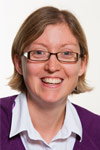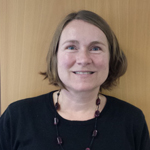Kristin Hübner, is a PhD student at the Department of Sociology at the University of Warwick.

Her piece ‘Doubting gender. Or why it is best to leave certain questions unanswered’ finished in the top 10 of the ESRC’s writing competition, The World in 2065– in collaboration with academic publishers, SAGE.
“Any social scientist who tries to predict the future should be regarded with healthy distrust”, I was told by my professor during one of my first sociology lectures which, ironically, dealt with the subject of social change. If this quote is to be believed, then the following paragraphs can only be understood as a work of fiction. Confronted with the choice between dystopia and utopia I chose the latter, believing and hoping that constructions of reality can eventually create a tangible reality.



